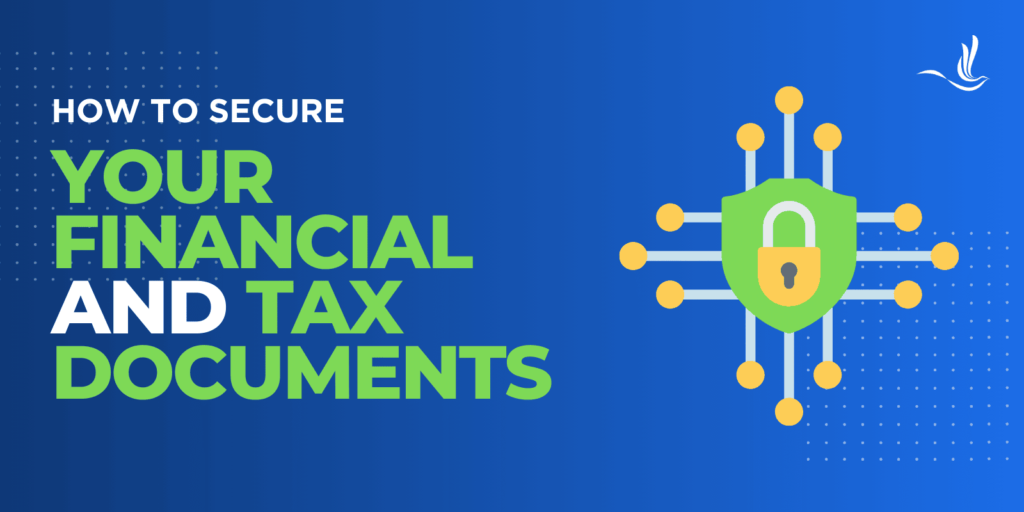
Tax and financial documents are some of the most sensitive and valuable records you possess. They contain critical information about your income, assets, and financial history, making them prime targets for identity thieves and fraudsters. Protecting these documents is not only essential for your financial well-being but also for safeguarding your personal information. In this article, we’ll discuss various strategies and best practices to help you secure your financial and tax documents effectively.
Organize Your Documents
Start by organizing your tax and financial documents. Gather all relevant paperwork, including tax returns, bank statements, investment records, and insurance policies. Create a filing system that categorizes these documents by type and date. Organizing your records not only makes it easier to find what you need but also reduces the chances of misplacing or losing important information.
Use Secure Storage
Once your documents are organized, it’s crucial to store them securely and not all in one place. Consider the following storage options:
- Physical Storage: Use a fireproof and waterproof safe or file cabinet to store physical copies of your documents. Make sure the safe or cabinet is in a secure location in your home.
- Digital Storage: Scan your documents and store them digitally on a secure, password-protected computer or external hard drive. You can also use cloud storage services with strong encryption and two-factor authentication.
- Offsite Storage: Consider storing physical copies of important documents in a safety deposit box at your bank or in a secure storage facility. This provides an additional layer of protection in case of a disaster.
Password Protection
If you’re storing your financial documents digitally, make sure your computer and storage devices are password protected. Use strong, unique passwords for your devices and accounts. Consider using a password manager to generate and store complex passwords securely.
Encryption
Encrypt your digital financial documents to add an extra layer of security. Most modern operating systems offer built-in encryption tools, or you can use third-party encryption software. Ensure that your chosen encryption method is robust and up-to-date, and that you will have no issue providing copies of your documents to taxing authorities.
Regular Backups
Backup your digital documents regularly to prevent data loss. Scheduled automatic backups to an external drive or a secure cloud storage service can help ensure that your financial records are safe even if your computer crashes or is compromised.
Limit Access
Restrict access to your financial documents. Only share them with trusted individuals or professionals who need the information for legitimate purposes, such as accountants, financial advisors, or lawyers. Be cautious about sharing sensitive information electronically and use secure methods when necessary.
Shred Old Documents
Dispose of physical documents you no longer need by shredding them. Identity thieves often sift through trash in search of valuable information. Investing in a cross-cut or micro-cut shredder is a wise choice to make it more challenging for anyone to reconstruct shredded documents.
Be Wary of Phishing Scams
Beware of phishing emails and scams that impersonate government agencies or financial institutions. The IRS and other legitimate organizations do not typically request sensitive information via email. Verify the sender’s authenticity before sharing any information or clicking on links.
Regularly Monitor Your Accounts
Frequently review your bank and credit card statements, as well as your credit reports, for any suspicious activity. Detecting fraud early can prevent significant financial losses.
Educate Yourself
Stay informed about current cybersecurity threats and scams. The more you know about potential risks, the better equipped you’ll be to protect your financial documents.
Get Tax Help from Optima Tax Relief
Protecting your tax and financial documents requires diligence and a proactive approach. By implementing these strategies and best practices, you can safeguard your sensitive information and reduce the risk of identity theft and financial fraud. Remember that prevention is key, and investing time and effort into securing your financial documents is a small price to pay for the peace of mind that comes with knowing your financial future is protected. Optima Tax Relief is the nation’s leading tax resolution firm with over a decade of experience helping taxpayers with tough tax situations.
If You Need Tax Help, Contact Us Today for a Free Consultation